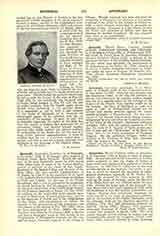

Antonelli, LEONARDO, CARDINAL, b. at Sinigaglia, November 6, 1730; d. January 23, 1811, nephew of Cardinal Nicolo Maria Antonelli. During the early part of his long diplomatic career he held among other offices those of canon of the Vatican Basilica, prefect of archives in the Castle of San Angelo, Secretary of the Sacred College and Assessor of the Holy Office. He was created Cardinal–Priest of St. Sabina by Pius VI in the consistory of April 24, 1775, and later Dean of the Sacred College and Bishop of Ostia and Velletri. At the time of the French Revolution, with a view to preventing the suspension of church services he lent his support to the vote for the civil constitution of the French clergy decreed by the National Assembly of France (July 12, 1790). In addition to the responsible posts already mentioned, he filled those of grand penitentiary, prefect of the Signature of Justice and of the Congregation of the Index, and pro-secretary of Briefs. He assisted in the preparation of the Concordat, and was present at the election of Pius VII (1800), whom he later accompanied to Paris (1804), He was banished from Rome by the French (1808) to Spoleto and later to Sinigaglia, where he died, leaving to the Congregation of Propaganda bequests for the support of twelve Armenian students in the College of Urbana. Though Antonelli has been criticized for arrogating to the papacy too arbitrary a civil power, a perusal of his letter to the bishops of Ireland reveals a more tolerant spirit than is generally attributed to him. Possessed of a rich library, he was the friend and protector of letters, and had as librarian the learned Cancellieri. He also acquired some fame as an archaeologist.
F. M. RUDGE

